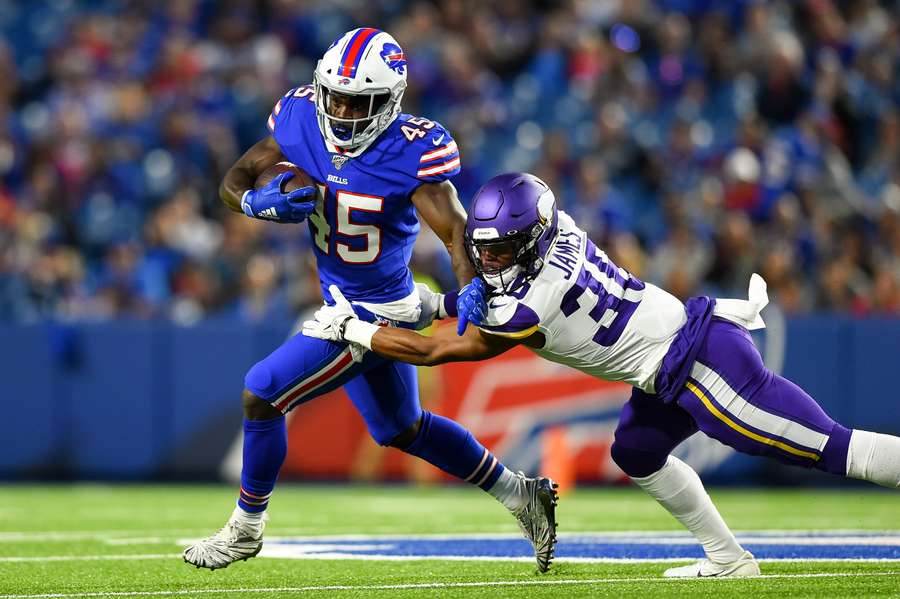Rees-Zamitt's stiffest test is the classroom, says fellow rugby convert Wade

Former Wales wing Rees-Zammit shocked the rugby world in January when, at the age of 22, he announced he was going to try to crack the NFL. He initially worked with the Kansas City Chiefs but, after being released, is now part of the Jacksonville Jaguars' practice squad.
With the Jags playing the Chicago Bears and the New England Patriots in two of three NFL games in London that kick off with the New York Jets against the Minnesota Vikings on October 6, Rees-Zammit is the number one topic of conversation among fans.
If anyone is qualified to make a judgement on his prospects it is Wade, one of the most devastating finishers in rugby, and very unfortunate to win only one England cap, who made the move across the Atlantic in 2018.
He scored a touchdown with his first carry for the Buffalo Bills in a pre-season game, but that proved the high point of his American football career as he was released three years later without making an NFL appearance.
He returned to rugby with French side Racing 92 in 2022 and is now back in England with Gloucester - filling the wing role there that Rees-Zammit held with such distinction and already flying after a hat-trick of tries in Friday's victory over Bristol.
"I think he is an exceptional athlete and when he first burst on to the scene as a teenager I thought he was definitely going to be a big star," Wade told reporters at an event by ticketing marketplace Viagogo to promote the NFL games being played at the Tottenham Hotspur Stadium and Wembley.
"But the thing is, in America everyone is an exceptional athlete, so for him to stand out he needs to show that he understands the sport and has 'game speed'. It's one thing to be able to run fast but the amount of information you have to take in pre-snap and while the play is unfolding, that's the part that slows you down. Having to think rather just go.
"That's the challenge that I faced, trying to eradicate that split-second hesitation before moving that can make all the difference and I think I saw a little of that in Louis's pre-season games. I recognised myself a bit.
"So that's where he will have to work hard. Do as much analysis as possible, watch the videos and get the playbook down and make those moves quicker."
Learning plays
Wade had some experience of being thrown in at the deep end when he was called up as an emergency injury replacement for the British & Irish Lions in Australia in 2013 having made his England debut in Argentina the week before.
As a winger, his role was quite straightforward but he said even the most complex lineout move or clever missed-pass backline trickery were child's play in comparison with the extraordinary amount of planning involved in every aspect of his adopted sport.
"In pre-season we would be in meetings from 8am-11am, train for two hours, shower, have lunch, then be back in meetings from 3pm-8pm," he said. "We spent way more time in meetings than on the field.
"We had all our own plays to nail down, then learning how different defences you are facing will operate, then analysing your own training, doing walkthroughs etc.
"The amount of detail is crazy. And remember when it's pre-season you have maybe 100 people trying to make it, so lots of them won't even get the opportunity to run the plays, so you have to try to visualise them. It's just a very different approach.
"Louis needs to nail that, but he'll get a huge amount of help."
Wade said that, coming from a sport not long out of its amateur days and operating on a relative shoestring at club level, the scale of operations in the NFL was mind-blowing.
He was helped in his transition by two full-time welfare staff while also getting intense one-on-one guidance from the myriad specialist coaches.
"Everyone in the organisation is totally professional and driven, and that comes through the players too," he said. "It's very cut-throat. Contracts are not guaranteed, you are highly motivated to not get cut so you have to be at your best, every day, every play."
